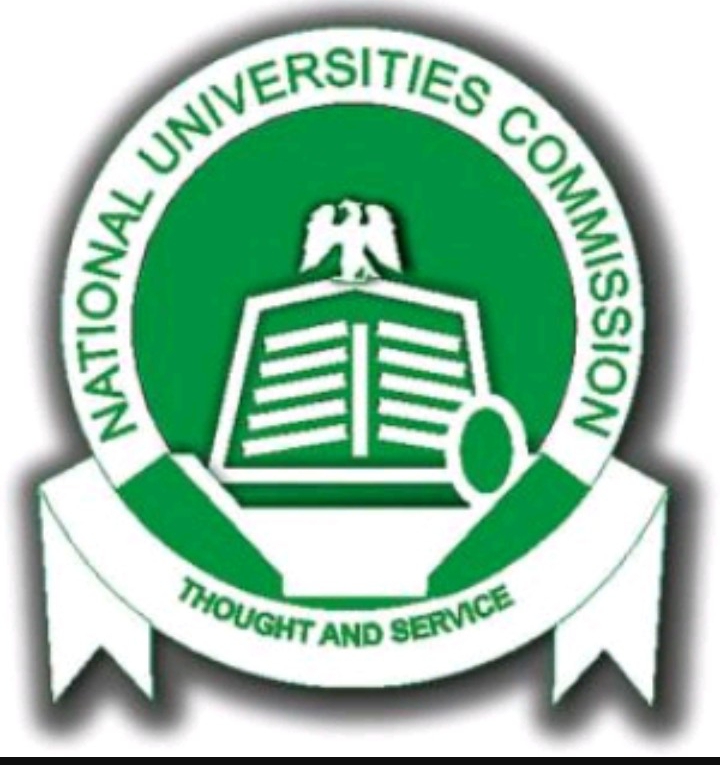The National Universities Commission (NUC) has strongly refuted allegations circulating on social media that discredit its accreditation process, describing the claims as false and uninformed.
In a statement signed by the Executive Secretary of the Commission, Professor Abdullahi Yusufu Ribadu, the NUC dismissed a claim attributed to one Taofik Olatubonsun, suggesting that accreditation is merely a formality and that universities lacking adequate staffing can still receive full accreditation.
“The Commission which would ordinarily not respond to such spurious online allegations, is duty bound to issue this rebuttal to put the record straight and clear the air on this trending issue. This has also become necessary so as to avert any collateral damage to the hard earned reputation of our University System, over the glorious years,” Ribadu stated.
He reaffirmed the Commission’s statutory role, as empowered by Section 10 of the Education (National Minimum Standards and Establishment of Institutions) Act Cap E3 LFN 2004, as the sole regulatory body authorized to accredit academic programmes in Nigerian universities and other degree-awarding institutions.
“The Commission is a creation of law and is the sole regulatory agency empowered by Section 10 of the Education National Minimum Standards and Establishment of Institutions) Act Cap E3 LFN 2004, to conduct Accreditation of Programmes in universities and other degree-awarding institutions in Nigeria. It is one of the core mandates of the Commission wherein its Accreditation process is a rigorous evaluation system designed to ensure that universities uphold high academic benchmarks. Therefore, the objective of accreditation is conformity with the extant Core Curriculum Minimum Academic Standards,” the statement continued.
Professor Ribadu also emphasized that the accreditation process employs a peer-review model, involving independent panels of professors who are subject experts, noting that several African countries, including Namibia, The Gambia, and Niger Republic, have studied Nigeria’s accreditation model due to its robustness.
“Additionally, foreign universities regularly utilise NUC’s accreditation results for the screening of applications for admission purposes in their institutions. We reckon that there is no such perfect Accreditation system anywhere in the world, but we are poised as a University System to continually work on deepening our culture of quality assurance,” he said.
The Commission explained that programme accreditation is based on compliance with the Core Curriculum Minimum Academic Standards (CCMAS), with emphasis on four key areas: Academic Matters, Staffing, Physical Facilities, and Library. A programme must score at least 70% in each of these areas—and overall—to earn full accreditation.
“It is important to note that earning Full Accreditation Status does not imply that a programme has all the necessary resources in perfect measure. However, this is deemed to be an acceptable standard of performance, with adequate room for further improvements,” the NUC clarified.
Addressing staffing concerns, the Commission emphasized that permanent staff presence remains a central element in the evaluation process, warning that any attempt to present temporary staff or falsify records would attract sanctions.
“The NUC guidelines also permit a maximum of four part-time academic staff which is equivalent to two permanent staff in respect of scoring per programme. It is noteworthy that during physical accreditation visits, evaluators ascertain the actual number of staff on ground. This process involves the physical inspection of their employment records and qualifications. Therefore any attempt to present temporary staff or falsify records by any university will attract sanctions, as prescribed in the guidelines,” it warned.
The statement also addressed ethical standards and oversight mechanisms within the accreditation process, noting that both NUC officials and evaluators are subject to strict professional codes.
“Consistent with the code of conduct for accreditation, the NUC equally maintains strict ethical standards during accreditation which panelists are fully aware of. Additionally, any Officer of the NUC found compromising the process or abusing the terms of his/her engagement, shall face severe disciplinary action. The Commission which does not condone any unwholesome behaviour will continue to strengthen its accreditation process to the highest standards of due diligence, while upholding its integrity, at all times,” NUC said.
The Commission urged universities to strengthen their internal quality assurance systems and reaffirmed its commitment to producing globally competitive graduates.
“As a university system which has enjoyed the glorious years of effective and reputable quality assurance, we are proud to say we are determined to ensure that the Nigerian University System operates at full strength despite the numerous challenges that it continues to face. As a good practice, universities are enjoined to establish and operationalize their respective internal quality assurance mechanisms to enhance the culture of quality.
We also wish to inform the public that the NUC remains committed to ensuring that Nigerian universities produce competent graduates who can compete globally. As a result, we urge stakeholders and the general public to rely on verified information rather than on baseless accusations that undermine the credibility of our higher education system,” the NUC added.

